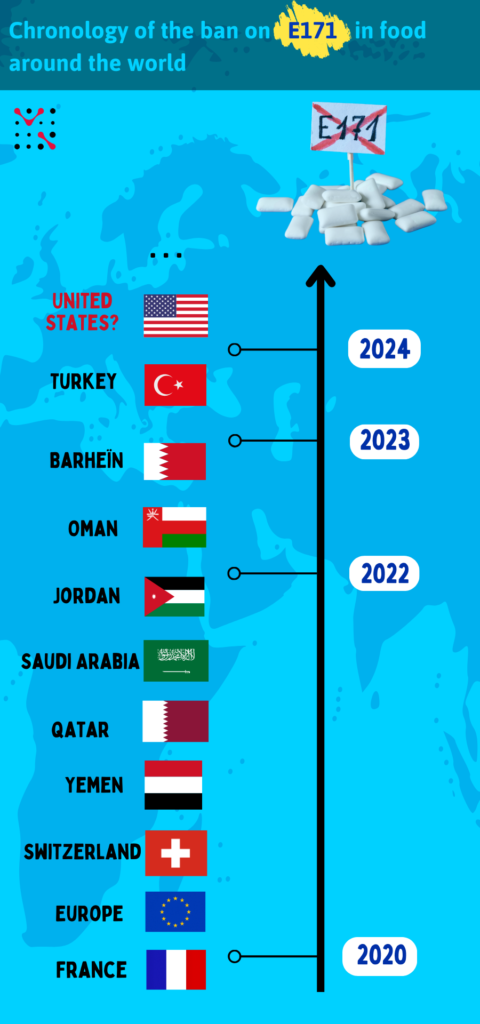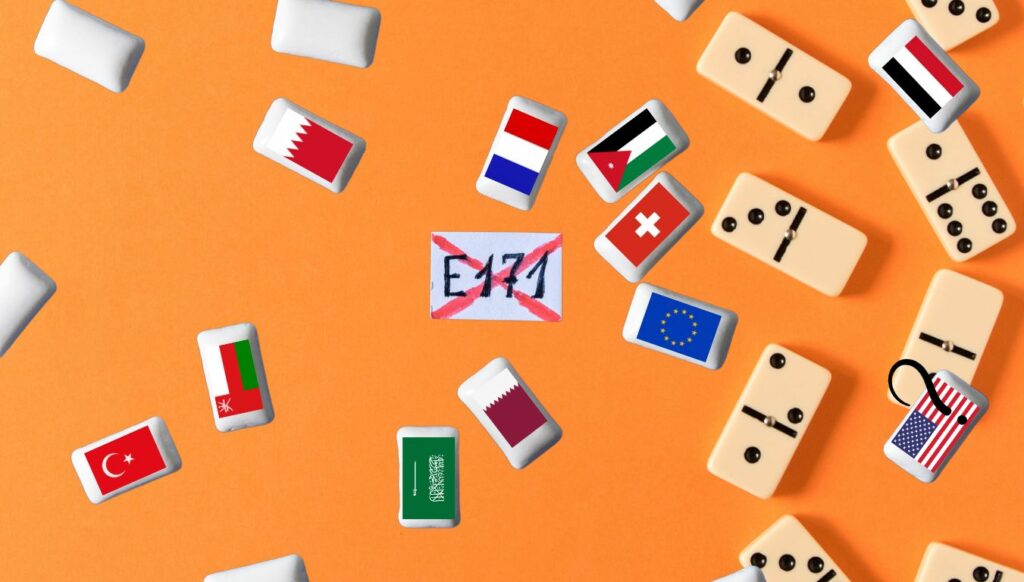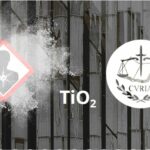
Along with Turkey, at least 36 countries have already said no to E171 in food
Since the 2020 ban on titanium dioxide (E171) in food in France, many countries have followed suit to protect the health of their citizens. Turkey is the latest.
In 2020, France took the initiative of suspending the use of the additive E171 in food products, in response to growing concerns about its possible harmful effects on health. This decision was followed by the European Union’ s official ban on the use of E171 starting from August 2022, setting off a worldwide chain reaction.
In September 2022, a similar measure came into effect in Switzerland and Yemen, both opting to ban E171. Other Middle Eastern countries followed suit, including Qatar and Saudi Arabia in October 2022, followed by Jordan in December 2022.
In February 2023, the Gulf Standardization Organization (GSO) removed E171 from its list of authorized additives. In July 2023, the ban on E171 came into force in the State of Oman, followed by Bahrain in October 2023.
Meanwhile, in the USA, associations have filed a formal request to the Food & Drug Administration (FDA) in 2023, calling for a ban on E171. To be continued…
Turkey is the latest country to join this global movement by banning E171 in food products from April 2024, in accordance with the updated Turkish Food Codex Food Additives Regulation published on October 13, 2023.


Other news on the topic
Upcoming Nano Agenda

- E-learning program: awareness-raising for personnel who come into contact with nanomaterials during research, formulation, production, maintenance, cleaning, upkeep, etc., as well as safety coordinators or engineers, facility managers, heads of laboratories where nanoparticles are handled.
- Organizers: INSTN Grenoble (CEA)
- On the program:
- 1 – Introduction, definition and characteristics of nanomaterials
- 2 – Toxicity of nanomaterials: the state of knowledge
- 3 – Metrology and characterization of nanomaterials
- 4 – Prevention and protection against nanomaterials in the workplace
- 5 – Quiz: assessment of learning outcomes
- The 2-hour course can be viewed for one month from the date of registration.
- Website: https://instn.cea.fr/…risques-lies-aux-nanomateriaux…

- Scientific congress
- Object: Addressing critical research topics in nanomaterials, offering a dedicated space for knowledge exchange, networking, and collaboration on global nanotechnology innovations
- Website: https://scientificwisdom.org/conferences/nanomaterials.html
- Learn more about :
- sectors developing or using functionalized nanomaterials
- recent innovations in surface chemistry characterization
- experts, industrialists and manufacturers of measuring instruments
- screening methods (TGA, ICP, XRF, Raman, NMR) and extreme surface analysis (XPS, SIMS)
- current and future actions at European and international level
- Organizers: LNE, Association NanoMesureFrance and the European SMURFnano project
- Website: www.lne.fr/fr/evenements/technical-day-nanomaterials-surface-chemistry







